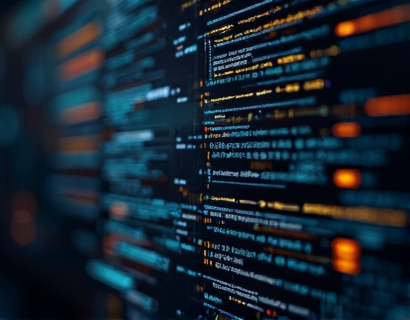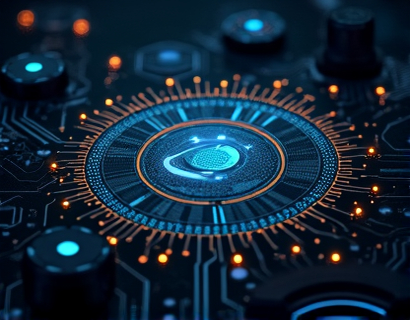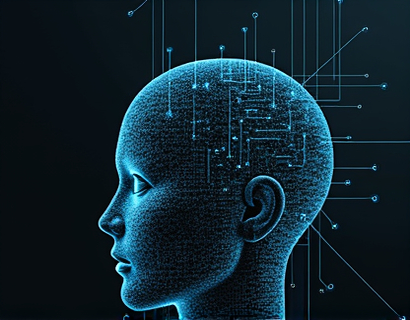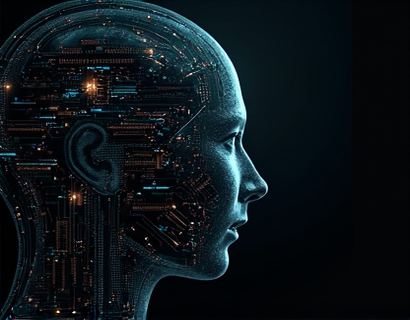AI-Driven Poker Education: Unlocking Success for All Skill Levels
In the world of poker, the intersection of skill, strategy, and psychology creates a complex game that challenges even the most seasoned players. For newcomers and experienced gamers alike, the path to mastering poker can be daunting. However, the advent of AI-driven learning tools is revolutionizing the way players of all levels approach the game. This article delves into how intelligent learning platforms are transforming poker education, offering a comprehensive range of resources that cater to everyone from beginners to experts.
Understanding AI-Driven Poker Education
AI-driven poker education leverages advanced algorithms and machine learning to provide personalized learning experiences. These platforms analyze a player's gameplay, identifying strengths and weaknesses, and tailor educational content accordingly. The goal is to create a dynamic learning environment that adapts to the player's progress, ensuring continuous improvement and engagement.
The integration of AI in poker education is not just about providing tips and strategies. It's about creating a holistic learning experience that encompasses various aspects of the game, from basic rules and hand rankings to advanced psychological tactics and decision-making under pressure. By harnessing the power of AI, these platforms can offer insights and insights that human instructors might overlook or take too long to recognize.
Comprehensive Educational Resources
One of the most significant advantages of AI-driven poker education is the breadth and depth of educational resources available. These platforms offer a structured curriculum that guides players through the fundamentals and beyond.
For beginners, the journey starts with the basics. Lessons cover the rules of poker, different variants, hand rankings, and the value of poker positions. Interactive tutorials and quizzes ensure that players not only understand the concepts but can apply them in real-time scenarios. Video explanations and animated diagrams make complex ideas more accessible, catering to visual learners.
As players progress, the content becomes more advanced. Intermediate lessons delve into probability and expected value, teaching players how to make informed decisions based on statistical analysis. Advanced topics include pot odds, decision trees, and the psychology of opponents. These resources are often presented in a gamified format, making learning both engaging and effective.
For experienced players, the focus shifts to refining strategies and staying ahead of the competition. AI-driven platforms offer in-depth analysis of professional gameplay, breaking down key moves and explaining the reasoning behind them. Players can study historical hands and learn from the best in the world, gaining valuable insights that can be applied to their own game.
Personalized Learning Paths
One of the most powerful features of AI-driven poker education is the ability to create personalized learning paths. By continuously monitoring a player's performance, these platforms can identify areas that need improvement and adjust the content accordingly. This personalized approach ensures that each player receives the exact guidance they need to progress at their own pace.
For instance, if a player consistently struggles with tight-aggressive play, the AI will generate a series of lessons and exercises focused on this specific aspect. The platform might start with basic concepts, such as when to raise or call, and gradually introduce more complex scenarios involving bluffing and reading opponents. Progress tracking allows players to see their improvement over time, providing motivation and a sense of achievement.
Real-Time Feedback and Analysis
Real-time feedback is another critical component of AI-driven poker education. As players engage in simulated games or analyze their real-game hands, the AI provides immediate feedback on their decisions. This instant analysis helps players understand the consequences of their actions and learn from mistakes without the pressure of an actual game.
The feedback can be detailed, covering various metrics such as hand selection, betting strategy, and table dynamics. Players can review their hands, see alternative moves, and understand why certain decisions led to success or failure. This level of detail is invaluable for players looking to refine their skills and become more consistent at the table.
Community and Social Learning
AI-driven poker education platforms often include community features that foster social learning. Players can join forums, participate in discussions, and share insights with others who are on similar learning journeys. This community aspect not only provides support and motivation but also exposes players to different perspectives and strategies.
Live streams and Q&A sessions with experienced players and AI experts further enrich the learning experience. Players can ask questions, get real-time advice, and observe how pros handle various situations at the table. These interactions can be particularly beneficial for players who prefer learning through observation and conversation.
Enhancing Decision-Making Skills
Decision-making is at the core of poker, and AI-driven education tools are designed to enhance this crucial skill. By simulating countless scenarios and providing data-driven insights, these platforms help players develop a more analytical approach to the game.
One key feature is the use of decision trees, which visually represent the possible outcomes of different decisions. Players can explore various branches of a decision tree, understanding the potential risks and rewards of each choice. This visual tool is particularly useful for beginners who are still learning to think several steps ahead.
Advanced players can benefit from AI-generated reports that analyze their decision-making process over time. These reports highlight patterns, such as over-aggressiveness in certain situations or a tendency to fold strong hands. By identifying these patterns, players can make conscious efforts to adjust their approach and improve their overall decision-making.
Psychological Aspects of Poker
Poker is not just a game of cards; it's also a battle of minds. The psychological aspect of the game can be as important as the technical skills. AI-driven education platforms recognize this and offer resources that focus on mental toughness and psychological strategies.
Lessons on reading opponents, managing emotions, and maintaining a positive mindset are crucial for long-term success. Players learn techniques to stay calm under pressure, manage bankroll effectively, and avoid common psychological pitfalls such as tilt and overconfidence. These skills are essential for maintaining a consistent edge at the table.
Adapting to Different Playing Styles
Every player has a unique style, and AI-driven poker education tools are designed to accommodate this diversity. Whether a player prefers a tight, selective approach or a loose, aggressive style, the AI can tailor the learning experience to align with their natural tendencies.
For tight players, the focus might be on identifying value bets and improving hand selection. For loose players, the emphasis could be on tightening up and playing more selectively to avoid unnecessary losses. By understanding and leveraging a player's natural style, the AI can provide more relevant and effective training.
Continuous Improvement and Adaptation
The beauty of AI-driven poker education lies in its ability to continuously improve and adapt. As players progress, the AI updates its algorithms based on new data, ensuring that the content remains relevant and challenging. This dynamic approach keeps the learning experience fresh and engaging, preventing plateaus and fostering ongoing growth.
Moreover, the AI can incorporate real-world data from live tournaments and online cash games, providing players with insights into current trends and successful strategies. This real-world relevance ensures that players are not only learning theoretical concepts but are also equipped to apply them in practical scenarios.
Conclusion
AI-driven poker education represents a significant leap forward in how players of all skill levels can improve their game. By offering personalized learning paths, real-time feedback, and a comprehensive range of resources, these platforms make poker more accessible and enjoyable. Whether you're just starting out or looking to refine your strategies, AI-driven education tools provide the support and guidance needed to achieve unparalleled success at the tables.










































